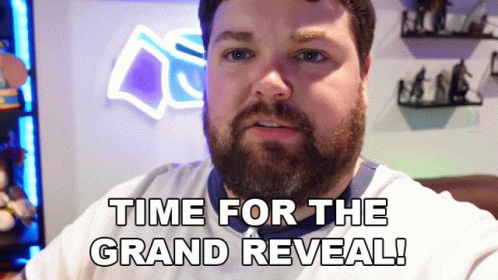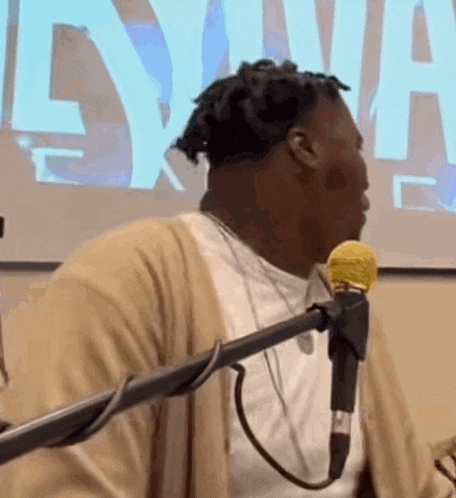At WALK THRU, we dive beneath the surface of scripture to uncover hidden gems that have been waiting for you all along. Whether you're a know all the Hebrew boys’ original names or just opening your Bible for the first time, I'm thrilled you're here as we discover the extraordinary within what others might skip past. LET’S GO!!
Recently I found myself waiting at the post office to submit my passport application. For a full hour, I stood, watching person after person get called before me. I studied every poster on the wall, counted ceiling tiles, and exchanged knowing glances with fellow waiters. When my number finally flashed on the screen, I approached the counter with documents in hand, only to be told I had filled out the wrong form entirely. All that waiting—for nothing. The frustration of time wasted, the deflation of expectations, and just all the money I spent—it all washed over me in that moment.
In those eternal moments, I understood viscerally what it means to have your entire existence suspended between promise and fulfillment. That's exactly how I feel every time I read Genesis 21.
When Sarah finally holds her promised son after decades of waiting, her laughter of disbelief transforms into joy. Yet in the same chapter, Hagar and Ishmael face exile into the wilderness. It's not just a collection of ancient family drama – it's a profound exploration of promise, patience, and the painful cost that sometimes accompanies divine fulfillment.
The Symphony of Divine Timing
Genesis 21 unfolds with the precision of a master composer. "The LORD visited Sarah as he had said, and the LORD did to Sarah as he had promised." This simple yet monumental statement sets everything in motion. The pattern is striking:
Promise remembered → Fulfillment manifested → Joy erupts → Complications arise → Divine provision extends
This isn't just narrative progression – it's revealing something profound about God's character. He is faithful to His word, operates on His own timeline, and extends compassion beyond our expected boundaries. Each verse builds upon the previous one, creating a complex melody of divine faithfulness amidst human complexity.
Breaking Down the Chapter
Verses 1-7: Isaac's birth and Sarah's joy
Verses 8-14: Conflict and Hagar's expulsion
Verses 15-21: God's provision in the wilderness
Verses 22-34: Abraham's covenant with Abimelech
But here's what's fascinating – notice the structure? The chapter begins with the fulfillment of God's promise to Sarah and ends with human covenant-making. In between, we witness both celebration and crisis, both laughter and tears. The narrative moves from miraculous birth to near-death, from abundance to scarcity and back to provision.
Soooo God takes us through seasons of abundance AND scarcity in the SAME chapter of our liv- (NVM, I am not gonna preach right now)
The Unseen Characters
When we read Genesis 21 closely, hidden dimensions emerge. Consider Ishmael, described simply as "playing" or "mocking" (depending on translation). This single Hebrew word (metzahek) – related to Isaac's name ("laughter") – becomes the catalyst for his expulsion.
What exactly did this teenager do that threatened Sarah so deeply?
Or consider Abraham's internal conflict, described in just a single verse: "And the thing was very displeasing to Abraham on account of his son."
Behind this understated line lies a father's heartbreak, forced to choose between his wife and his firstborn.
And what of Isaac himself? Present yet nearly silent, the promised child becomes both the embodiment of divine faithfulness and unwittingly, the cause of another child's suffering.
The Wilderness Provision
The most profound moment in Genesis 21 comes not in the celebration of Isaac's birth but in the desolation of the wilderness. When water runs out and Hagar places Ishmael under a bush to avoid watching him die, "God heard the voice of the boy" (v.17).
This isn't a minor detail – it's a theological cornerstone! The God who fulfilled His promise to Sarah is the same God who hears the cry of the displaced. Divine election doesn't mean divine abandonment of others. The God of the covenant is also the God of the wilderness.
"Sometimes your desert place is exactly where you discover God sees you and hears you."
"Then God OPENED HER EYES, and she saw a well of water."
Let that sink in! The water was ALREADY THERE! Hagar wasn't suffering because provision was absent – she was suffering because she couldn't SEE what God had ALREADY PROVIDED!
Some of you are crying in the wilderness right now, feeling abandoned and thinking God has left you to die of thirst. But I prophesy to you today that your problem isn't a lack of divine provision – it's spiritual vision! The well you need is already within reach, but your tears are blinding you to what God has already placed in your path!
Just as God opened Hagar's eyes in the desert, He's opening yours RIGHT NOW to see the provision that's been waiting for you all along! That relationship, that job, that healing, that breakthrough – it's not coming, beloved, IT'S ALREADY THERE! You just need God to open your eyes to see it!
The same God who remembered Sarah in her old age is remembering you in your wilderness. The same God who heard the cry of the castaway son is hearing your midnight prayers. The same God who made a nation from the child of a slave woman can make something magnificent from your broken pieces!
Don't you dare give up at the edge of your miracle! The well is closer than you think!
The Echoes of Christ
Genesis 21 anticipates the gospel in unexpected ways. Isaac's miraculous birth to elderly parents echoes the even more miraculous virgin birth. The name "Isaac" (laughter) points toward the joy that would come through Jesus.
Even more powerfully, Hagar and Ishmael's wilderness journey foreshadows how God provides living water to the spiritually thirsty. "God opened her eyes, and she saw a well of water" (v.19) prefigures how Christ opens our eyes to salvation we couldn't see on our own.
The painful separation between Abraham and Ishmael hints at the ultimate separation the Father would endure when His Son hung on the cross. And God's promise to make Ishmael a great nation despite his exclusion from the covenant line reveals how divine blessing extends beyond our human categories – just as salvation would eventually extend to all peoples.
REFLECTION MOMENT
Where in your life are you experiencing:
A long-awaited promise finally fulfilled?
The pain of exclusion or rejection?
A wilderness moment where you need God to "open your eyes" to His provision?
Take a moment to identify which character in Genesis 21 resonates most with your current circumstances.
Two Sons, Two Faiths
What begins as a family conflict in Genesis 21 eventually blossoms into something far more profound in human history. This separation between brothers – Isaac and Ishmael – would later be understood as the foundational narrative for two of the world's great monotheistic faiths.
Through Isaac's lineage would come Jacob (Israel), Moses, David, and eventually Jesus Christ – establishing the Judeo-Christian tradition. The New Testament specifically identifies Isaac as the child of promise (Galatians 4:22-23), and Christians trace their spiritual ancestry through him as children of promise by faith.
Meanwhile, Islamic tradition traces its spiritual heritage through Ishmael. While the Quran does not explicitly name which son Abraham nearly sacrificed, Islamic scholars generally believe it was Ishmael rather than Isaac. Muslims consider Ishmael a prophet and Abraham's true heir, believing that he and Abraham together built the Kaaba in Mecca, Islam's holiest site.
What's remarkable is how God blessed both sons. To Isaac went the covenant promises that would shape Israel's destiny. Yet to Ishmael, God promised: "I will make him into a great nation" (Genesis 21:18) – a promise wonderfully fulfilled as Islam grew to embrace nearly two billion followers worldwide.
The family tensions in this ancient tent echo through cathedrals and mosques today. Two brothers, two mothers, two promises – yet one God who heard both their cries. In the painful separation of these brothers, we find not just the seeds of historical conflict, but also the reminder that God's compassion extends beyond our human boundaries.
Your Turn to Walk Through
As you read Genesis 21 again (and I encourage you to do so), consider:
How does this chapter challenge our assumptions about who belongs in God's story?
What does the text reveal about the complexity of human emotions in the face of divine promises?
Where do you see God's compassion extending beyond expected boundaries?
Join the Conversation
What struck you most about Genesis 21? Have you experienced your own wilderness moment where God surprised you with provision? I'd love to hear your thoughts below - this is where we truly WALK THRU scripture together. Also share this with a friend (orrrr friends) so we can help spread the Gospel!!!









